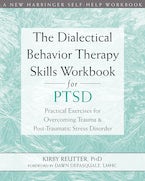We’ve all had the client that makes the frantic phone call. They are suicidal, their abuser was just released, or a family member was just killed. How can we both efficiently and effectively help this client adequately stabilize until their next scheduled session? Brain science has the answer!
The human brain processes all incoming information through the following neurological systems, in this specific sequence: the survival brain, the emotion brain, the attachment brain, and the cognition brain. We can help clients quickly stabilize by walking them through each of these four brains.
When a client is experiencing an active crisis, their survival brain has been activated. We can help them quiet the survival brain by making sure they are physically safe and using basic distress tolerance techniques (such as deep breathing). Once the survival brain has relaxed, then we can help them quiet the emotion brain through validation and more self-soothing strategies. The client cannot fully enter their attachment brain until both the survival brain and emotion brain have settled down. Now is the time to use even more validation and reassure the client that we are there for them. Only when the client feels safe physically (calm survival brain), emotionally (calm emotion brain), and interpersonally (calm attachment brain), can they now access the more rational part of their brain. At this point, we can help the client coherently brainstorm ongoing coping strategies to carry them through to the next session.
In summary, it’s as simple as: (1) Quiet the survival brain, (2) Soothe the emotion brain, (3) Reassure the attachment brain, and (4) Engage the cognition brain. By using your own clinical tools to follow this simple sequence, you can literally help the most frantic client re-stabilize quickly and effectively.
Kirby Reutter, PhD, is a bilingual licensed psychologist, licensed mental health counselor, and internationally certified substance abuse counselor. Reutter has widely presented his unique approaches to psychotherapy throughout the nation, including one TEDx talk and three trainings for the US military. In addition, Reutter has conducted international research on spiritual coping, the results of which have been published by three different sources and personally presented at the Massachusetts Institute of Technology in 2015. Reutter was named a New England Scholar in 2002, as well as Northcentral University’s Alumni of the Year in 2018 for his work with trauma treatment, including survivors of human trafficking. Reutter currently contracts with the US Department of Homeland Security.



 2024 Peace Playbook: 3 Tactics to Avoid Clashes with Your Partner
2024 Peace Playbook: 3 Tactics to Avoid Clashes with Your Partner